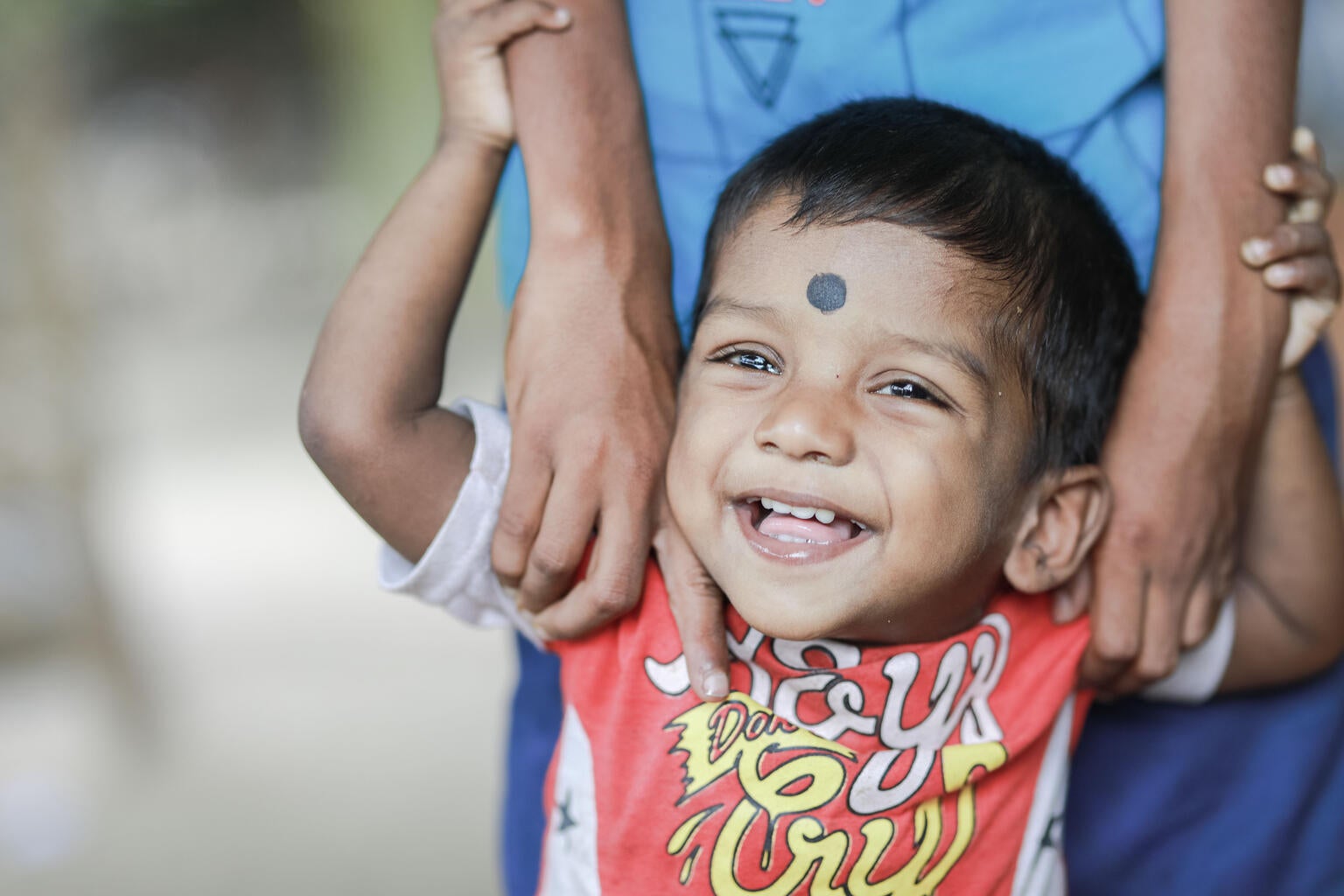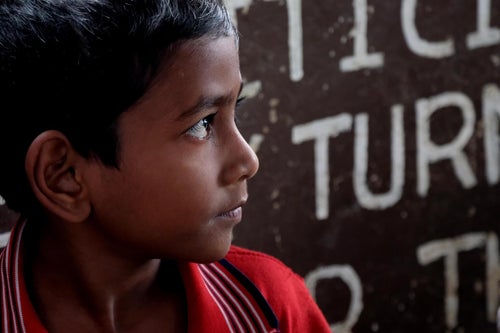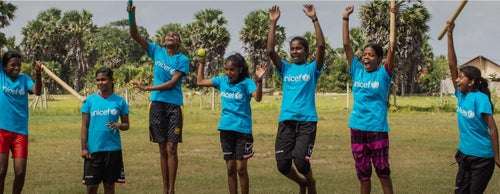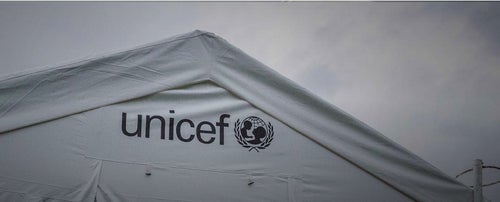We’re in Sri Lanka, delivering nutrition, health care and education while keeping children safe from harm.
Renowned for its breathtaking scenery and love for cricket, Sri Lanka is an intriguing nation that faces many challenges. For over 50 years, UNICEF has been on the ground, working with our partners delivering for vulnerable children and their families. During this time Sri Lanka has made significant strides across health care, education and child protection, while providing emergency relief during conflict and natural disasters.
Today, Sri Lanka is facing its worst economic crisis since Independence, placing significant pressure on existing services that support children in need while exacerbating existing issues around equality, nutrition, education and healthcare.
Alongside our partners, we’re ramping up our relief work and bolstering our long-term development programs which focus on keeping mums and their babies healthy, protecting children from harm, and unleashing the potential of Sri Lanka’s young people so that can thrive.
70%
of families in Sri Lanka report reducing their daily food intake since the 2022 economic crisis.
35,000
children in Sri Lanka suffer from Severe Acute Malnutrition.
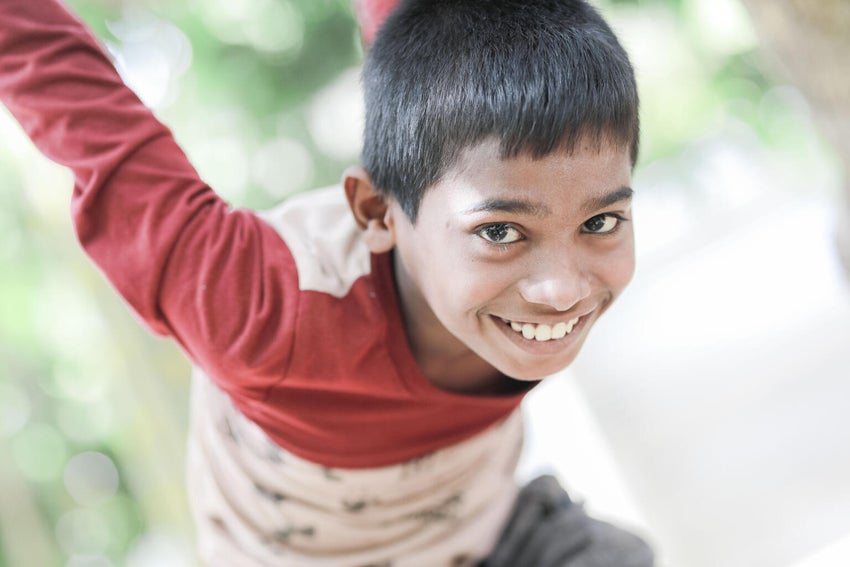
The challenges children are facing in Sri Lanka
Sri Lanka is facing its worst economic crisis since independence. Defaulting on its debt on 12 April 2022, the economic crisis has exacerbated existing challenges and has sparked new ones.
Currently 2.3 million children are in need of some form of humanitarian assistance. Supply shortages and significant increases in fuel and food prices are affecting the whole country. Public transport has been cut, leaving many children and teachers without access to school. This exposes them to a broad range of risks, including exploitation, abuse, violence, and child labour.
Even before the current crisis, Sri Lanka had the second highest child malnutrition rate in South Asia. Under rising food prices, 70 percent of households are now reporting reduced food consumption. Sri Lanka’s alarming food insecurity is further threatened by the shortage of safe water and energy. Power is being cut for up to 13 hours every day. Parents are forced to queue for hours for fuel and essential food items, leaving limited time to care for their children. With mounting economic pressures, reports of violence against children and exploitation are increasing.
How we’re protecting the rights of children in Sri Lanka
Over the years, we have successfully piloted new approaches to accelerate positive change for children and their families. Our work in Sri Lanka is only possible thanks to the generous support of the Australian public and the Australian Government through the Australian NGO Cooperation Program (ANCP).
2,111
adolescents participated in programs designed to challenge harmful social norms from 2020 to 2022.
60
children’s clubs were supported to adapt their programs to reach children virtually during 2021 and 2022.
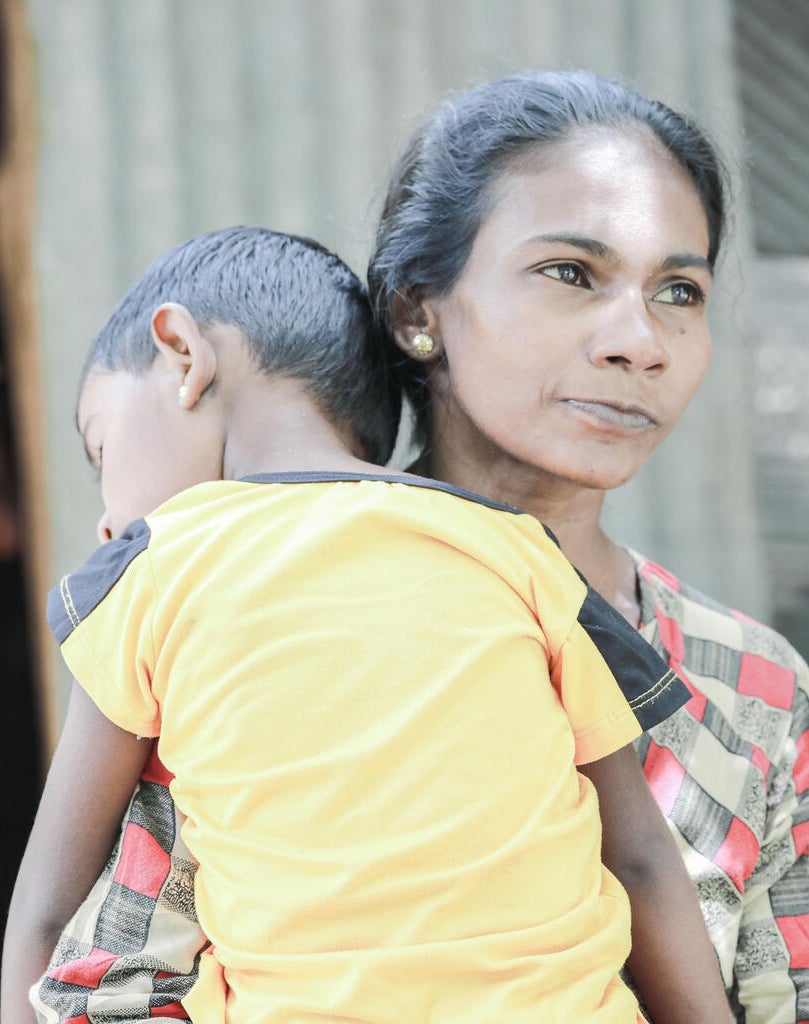
Meet Selvathy, Sri Lanka a Sri Lankan mother of two young children
Already struggling to make ends meet, the escalating economic crisis is pushing her family to the edge, and sadly, her youngest is suffering from malnutrition.
The current crisis, together with consecutive poor crop yields, have heightened food insecurity and reduced food consumption in quantity and quality, putting young children at greater risk and worsening child malnutrition.
“My main concern is about the health and nutrient level of my children. Groceries are expensive and it is difficult for us to feed my children three nutritious meals a day. Our income is getting worse day by day and grocery prices are also increasing. It’s so hard for us to live like this,” says Selvathy.
Solutions for treating children with Severe Acute Malnutrition (SAM) are well-established. Ready to Use Therapeutic Food (RUTF) is a high impact intervention which can be provided to young children at home to treat SAM. It is low cost, easy to store and transport, and easy for parents to administer.
It is a highly effective treatment, allowing malnourished children to gain weight and recover quickly. UNICEF procures almost 80 per cent of the world’s RUTF, providing lifesaving care to countless children in the hardest to reach locations.
In Sri Lanka, we're making a difference in:
Help the children of Sri Lanka
By donating today, you can help children like Abishayan realise his dream of becoming a technical engineer.
The impact of our work
Every child has the right to be healthy, educated, and live safe from harm.



